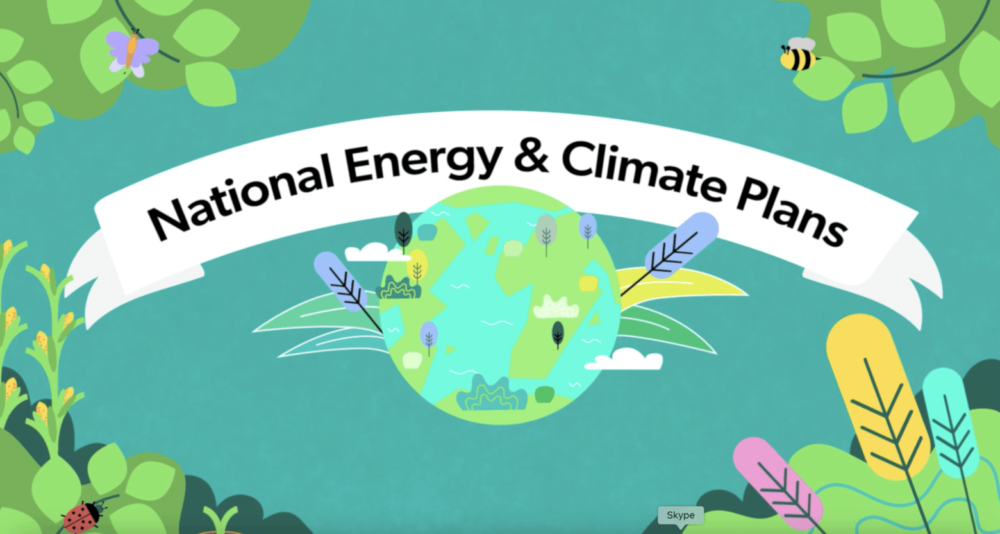Tomorrow, 30 June, marks the official deadline for EU countries to submit their updated draft National Energy and Climate Plans (NECPs) to the European Commission. These plans will reveal their new contributions to the EU 2030 climate and energy targets and the policies that lead there. As of now, unless there is a massive last-minute submission tomorrow, many countries will not respect this deadline.
“The EU will not achieve climate neutrality by accident or without thorough planning. National Energy and Climate Plans are central strategic tools, that design the systemic transformation we need, mobilise the money and ensure accelerated climate action on the ground.
In other words, these national plans must keep us safe from climate impacts, protect our wallet against high fossil energy bills, and ensure a sustainable life”, said Brigitta Bozsó – project manager and policy expert, CAN Europe.
There are many things that could go wrong with these plans: from insufficient ambition, or inadequate financing, implementation and inconsistencies – to lack of public support.
“We cannot afford sloppy or unambitious NECPs, as these plans are one of the main opportunities for the EU to implement a transition compatible with the 1.5°C objective of the Paris Agreement”, argued Brigitta Bozsó.

Hence, Member States must take their homework seriously – not just by respecting the deadline, but also by submitting ambitious, comprehensive, and coherent NECP draft plans to the European Commission, which in turn must act as a watchdog of this process. In addition, it remains an obligation that the NECP drafts are developed with the effective participation of civil society and relevant stakeholders.
“Planning the fundamental reforms that will directly affect the ways of life of all European citizens cannot take place in an ivory tower. Given the scale and pace of climate action that is required, citizens and stakeholders must be consulted and participate meaningfully in the elaboration of NECPs”, added Brigitta Bozsó.
The current EU 2030 target of reducing net emissions by at least 55% doesn’t live up to the level of the climate emergency and the EU’s equitable share of reducing emissions globally. The EU has the moral obligation now to overshoot its 2030 target and achieve gross emissions by at least -65% by 2030 and reach net zero emissions by 2040 at the latest. The NECPs revision, between now and June 2024, is a fundamental opportunity for EU Member States to set things right – to accelerate climate action and the energy transition, to bring NECPs to their real, transformative potential and enable citizens to make the switch to a sustainable lifestyle easily and enjoy the multiple benefits.
Press releases from our members
– Czech Republic: CDE – Centre for Transport and Energy
Notes to editors
- NECPs are plans that outline how EU countries will implement the 2030 climate and energy targets. These plans encompass the targets, policies, and measures devised by Member States to fulfil their climate and energy commitments from 2021 to 2030. They should be in line with the EU Green Deal, updated EU climate and energy targets for 2030, and revised climate and energy legislation. Check our media briefing.
- Member States already submitted their NECPs for the current decade (2021-2030) in 2019-2020. The current process is an update of those existing climate and energy plans. We expect massive changes in the updated NECPs given the major changes since their first adoption: the Fit For 55 package, COVID-19 pandemic, RepowerEU, and Russia’s invasion of Ukraine.
- A parallel NECP process is taking place in the Western Balkan countries. You can find more information on this process here.
- Climate and environment NGOs based in 12 European countries gathered more than 70 examples of climate action measures implemented on the ground. Check the summary here or go to the website for the entire content. This work is part of the TogetherFor1.5 project that aims to align the EU’s climate action with the 1.5°C objective of the Paris Agreement.
- Contact: Cristina Dascalu: cristina.dascalu @ caneurope.org



